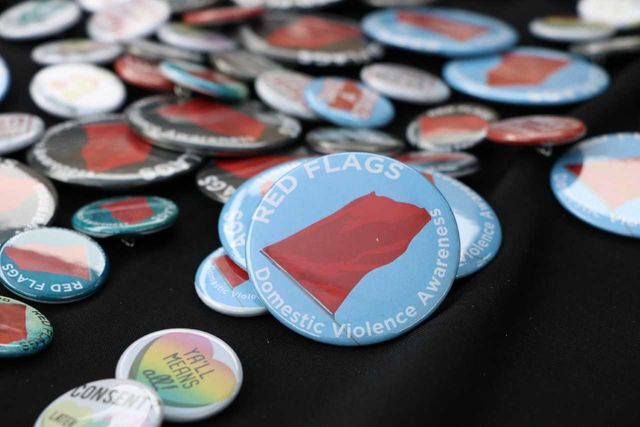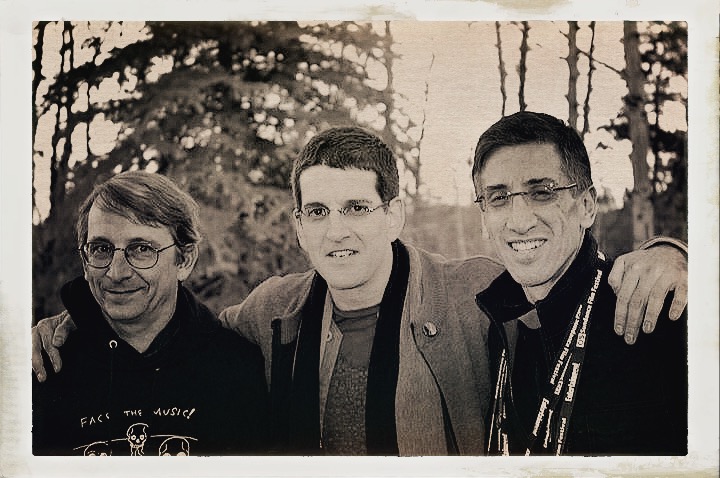Spooky season may have arrived, but the fear of domestic violence is no joke. October is Dating Violence Awareness Month, providing a platform for the community to discuss the reality of dating violence.
The legal definition of dating violence is any behavior that is considered physical, mental or emotional abuse, and is done in a romantic or intimate relationship.
It is important to be aware of the signs of dating violence. Isolation, jealousy or a relationship moving too quickly are potential red flags. If a person is in love or has a strong connection to the abuser, the relationship becomes even more difficult to leave.
Kelsey Banton, Student Health Center health promotion specialist, is a peer education group advisor for Men Against Violence. She said the organization focuses on conversations about domestic violence and ways to challenge it.
“There are multiple avenues in which we try to (challenge and prevent violence), like holding weekly meetings, tabling at outreach events, usually in The Quad and training officers to do presentations centered around sexual violence, hate crimes and dating violence,” Banton said. “We talk about issues at an individual level, but also within our communities and on campus.”
The most recent MAV event, Red Flags and Relationships, discussed red flags in dating, relationships and violence.
In The Quad on Oct. 25, MAV provided red flags with written examples of unhealthy or abusive aspects of relationships. Students were able to look through them or create their own to find one that resonates with them. They then wrote a message to help challenge the idea and rid normalizing the abusive behavior.
Meetings for MAV are held every Monday at 5:15 p.m. in room 202 of the Student Health Center.
Melissa Rodriguez, Hays-Caldwell Women’s Center director of community partnerships, said resources like the Women’s Center can help and educate friends and family of dating violence victims who may be in denial or afraid to speak up.
“Our mission is to provide education, violence prevention services, shelter, counseling and crisis intervention to victims of family violence, dating violence, sexual assault and child abuse,” Rodriguez said. “The best thing for a friend or family member (to do) is just be there for them. Let them know you’re there if and when they are ready.”
A lot of challenges with getting out of abusive relationships is the fact that the victim is made to think they are dependent on their partner, causing a power and control dynamic. According to the National Domestic Violence Hotline, people tend to go back to abusive relationships seven times. The reality of trying to successfully leave a bad situation is difficult.
Otto Glenewinkel, Texas State police officer and crime prevention chief, said there are ways to increase awareness about dating violence.
“I definitely don’t think there are enough support groups to help victims or survivors,” Glenewinkel said. “A lot of people may see something happening but won’t say anything. It’s tough to step up. In today’s society, it’s seen as socially acceptable. We should come together to change that. Step up, step in or call the police.”
Although October may be ending, dating violence is a year-round problem. Bringing awareness to the issue can help victims who may be too afraid to speak.
For resources, contact the Texas State Counseling Center at (512) 245-2208 or HCWC 24-hour hotline: (512) 396-HELP.
Categories:
Dating violence awareness month addresses lasting issue
October 31, 2018
Domestic Violence Awareness pin given out at Red Flags and Relationships event Oct. 25 hosted by Men Against Violence.
_Photo Courtesy of Men Against Violence
0
Donate to The University Star
Your donation will support the student journalists of Texas State University. Your contribution will allow us to purchase equipment and cover our annual website hosting costs.
More to Discover









